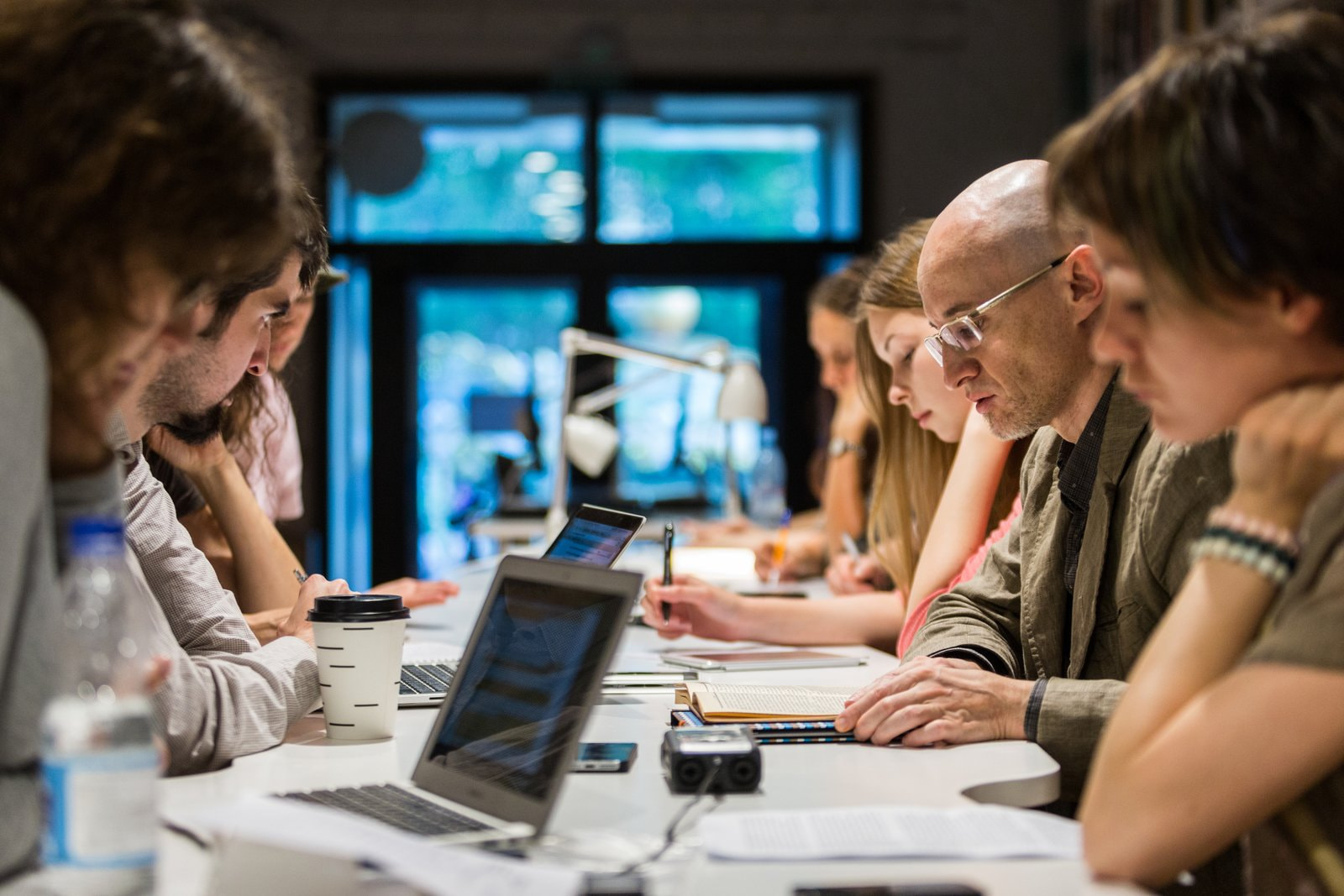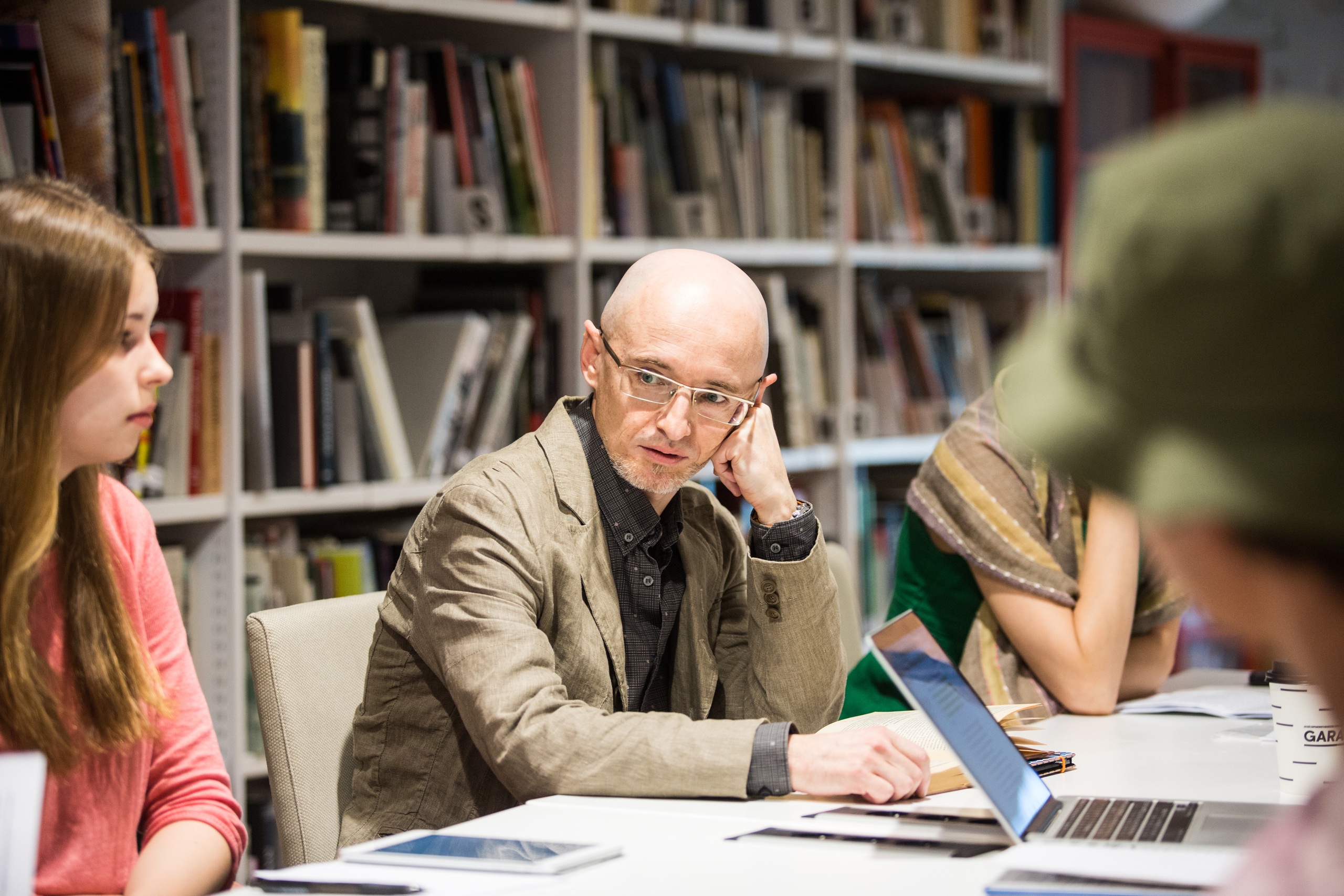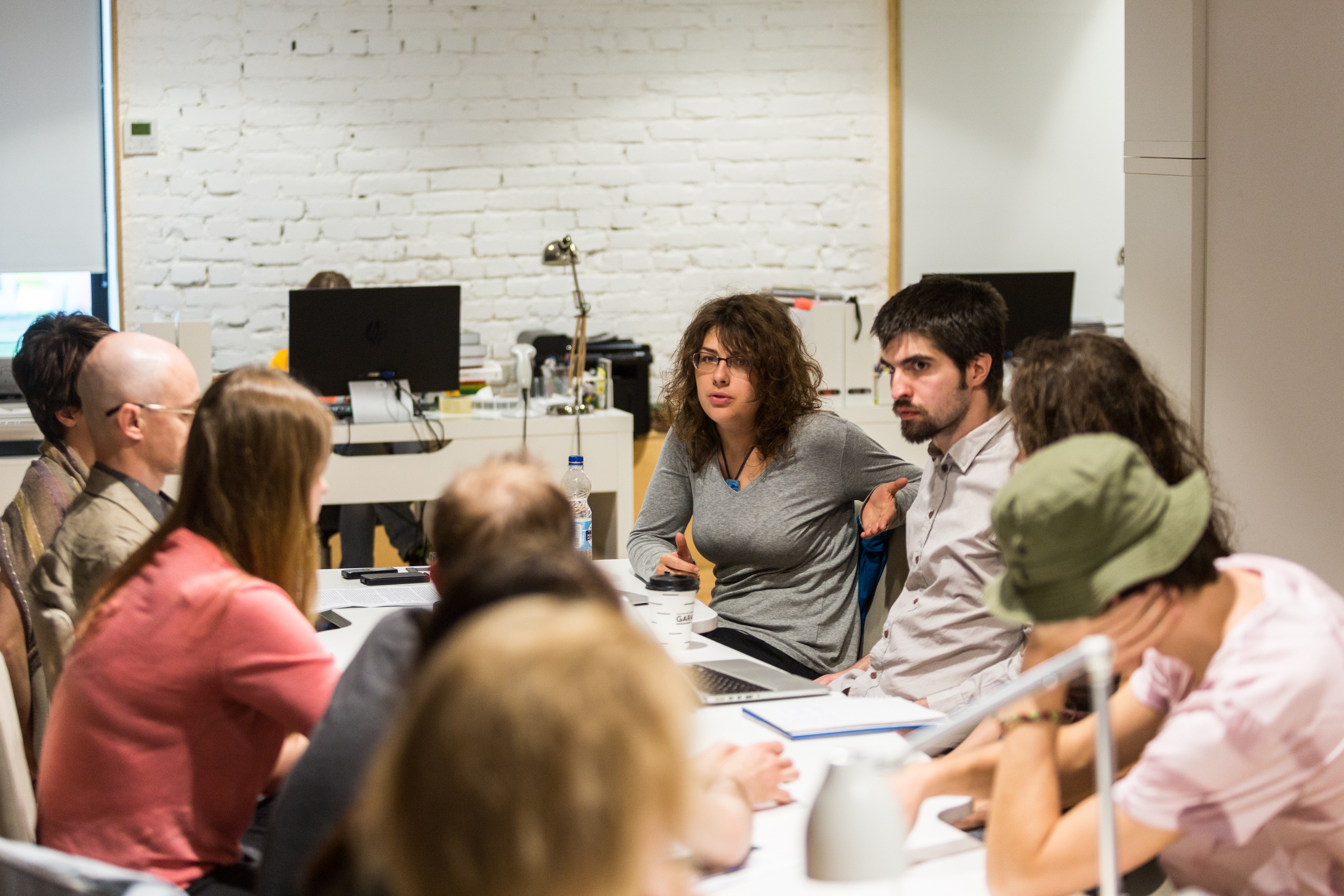READING GROUP 1
Technology, Cultural Technology, and Machinery
What defines our contemporaneity, which abounds in gadgets, yet is scared—and at times contemptuous—of technology? Over the centuries of admiration for beaux arts and arts liberaux —putting them at the top of the hierarchy of creative occupations, we have got used to thinking of technology as instrumental. However, the links between art and science, which have always existed, have become particularly complex in the recent years. This reading group will focus on three aspects of this relationship: the fascination with technology among futurists and filmmakers; the alienation of philosophers; and the anthropology of machines that merge with human bodies.
Moderator: Moderator: Nina Sosna (PhD in Philosophy) is a media theorist and philosopher, a lecturer at the Higher School of Economics, and Deputy Chief Editor at Philosophy Journal. She is the author of Photography and Image: The Visual, the Obscure, the Phantomlike (Moscow: 2014), the editor of Media: Between Magic and Technology (Moscow: 2014), and translated Jean-Luc Marion's The Crossing of the Visible (Moscow: 2010).
READING GROUP 2
Antinomies in Art History
As well as the totality of art works, art history is made by the system of ideas that form around art and develop alongside artistic practices. This reading group takes the works of American art critic Hal Foster as its starting point and focuses on the emergence and development of antinomies such as autonomous vs. socially informed art; text vs. context; form vs. content in art. The group will discuss the concepts of artistic will, symbolic form, and spectatorship among others.
Moderator: Vlad Sofronov (Ph.D.) is an independent researcher, the author of Communist Sensuality: Reading Kierkegaard, Proust, Kafka, Marx (Moscow, 2009), and translator of Slavoj Žižek’s Sublime Object of Ideology and Arthur Lovejoy’s Great Chain of Being, as well as a contributor and editor at Logos, Art Magazine, and others.
READING GROUP 3
Refuting Popular Myths about Marxism
As a philosophical, economical and political paradigm, by the beginning of this century Marxism has become inseparable from the myths that have emerged around it. The popular maxims about the class struggle, the base that determines the superstructure, and the artwork as a reflection of collective consciousness are only a few among them. The reading group will study texts that clarify the original ideas and refute such myths.
Moderator: Vlad Sofronov (Ph.D.) is an independent researcher, the author of Communist Sensuality: Reading Kierkegaard, Proust, Kafka, Marx (Moscow, 2009), and translator of Slavoj Žižek’s Sublime Object of Ideology and Arthur Lovejoy’s Great Chain of Being, as well as a contributor and editor at Logos, Art Magazine, and others.
READING GROUP 4
Speech, Language and Culture. Lacanian Analysis
Psychoanalytic discourse has informed both our understanding of art and philosophy in the twentieth century, and the way we speak about them. According to Jacques Lacan, erroneous interpretations of Freud’s ideas have created theoretical cacophony in humanity’s understanding of itself. The main text for the new reading group is Lacan’s 1953 lecture The Function and Field of Speech and Language in Psychoanalysis, often referred to as the Rome Discourse. This lecture marked the radical linguistic turn in psychoanalysis, which has had a great impact on postmodern culture.
Moderator: Alexandr Bronnikov is a practicing psychoanalyst, a participant of Rennes 2 (France) and Moscow State Psychology and Pedagogics University joint education program. He is a lecturer in Lacanian psychoanalysis at the RSUH, and has trained at psychoanalytic clinics in Paris.
READING GROUP 5
Photography: from Theory to Practice and Back Again
The discourse on photography—its making, perception and use—has crystallized into a number of essential texts written by theorists and practitioners. Various analyses of photography offered by different disciplines will be examined in conjunction with various genres of photography and new theories in urban studies. Each of the texts studied in the group ultimately answer the question about the nature of photography.
Moderator: Andrey N. Andreyev is a sociologist and a practicing photographer, author of a number of publications on biographical sociology. He was a lecturer at the National Research University Higher School of Economics (2009–2015) and is an active participant of the Ethnographic Theory reading group at the Russian Presidential Academy of National Economy and Public Administration.





